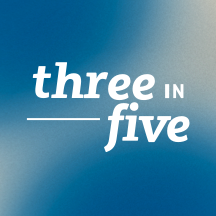Explore institutional insights
- Please enter a search term.
-
Insights
Stay up to date

Market update

Investor insights
-
Investments
Stay up to date

Market update

Investor insights
-
About us
Stay up to date
Learn more about our investment group

Market update

Investor insights
- Please enter a search term.
- Investments
-
Insights
- Back
- Insights
- Insights
-
All insights
- Back
- All insights
- Cash equitization: liquidity with flexibility
- Q3 2021: Investment grade private credit update
- Q3 2022 Investment Grade Private Credit Market Update
- Q3 2022: Quarterly Inflation Watch
- Crescent Capital Markets Q3 2022 Update
- Multi-Asset Credit Strategy: October 2022 Update
- Update on the Real Return Bond Market
- SLC Management Update: real return bonds cessation announcement
- Multi-Asset Credit Strategy: November 2022 Update
- Multi-Asset Credit Strategy: December 2022 Update
- 2023 Global Investment Outlook
- Diversifying fixed income portfolios with alternatives
- Q4 2022: Quarterly Inflation Watch
- Q4 2022: Investment Grade Private Credit update
- Multi-Asset Credit Strategy: January 2023 Update
- Federal budget implications for Canadian preferred shares
- Q1 2023: Quarterly Inflation Watch
- Q1 2023: Investment Grade Private Credit update
- 2023 Mid-year Global Investment Outlook
- Q2 2023: Investment Grade Private Credit update
- July 2023: Inflation watch
- Q3 2023: Investment Grade Private Credit update
- September 2023: Inflation watch
- Narrowly syndicated credit: yield opportunities in an underexplored niche
- December 2023: Inflation Watch
- 2024 Global Investment Outlook
- Q4 2023: Investment Grade Private Credit update
- Looking under the hood at below-IG fixed income
- Q1 2024: Investment Grade Private Credit update
- Q1 2024: Inflation Watch
- Canadian Pension Risk Strategies 2024
- 2024 Mid-year Global Investment Outlook
- Q2 2024: Inflation Watch
- Q2 2024: Investment Grade Private Credit update
-
Three in Five Podcast
- Back
- Three in Five Podcast
- Mark Attanasio on the changing landscape of private credit
- James Slotnick on the U.S. midterm elections
- James Slotnick on the 2022 U.S. midterm elections
- Andrew and John on commonalities in investment grade private credit and narrowly syndicated bank loans
- Cliff Corso on opportunity in the high net worth market
- Kate McKeon on sustainable investing and Net Zero
- Ben Greene on education, allyship, and the trans experience
- Melissa on the importance of the client experience
- Cristina Medina on Invest in Girls
- Steve on the Canadian P&C insurance market
- Rich and Peter on growing stress in the banking sector
- Doug on the debt ceiling
- Jim Blakemore on real estate debt
- Chris and Tim on the Special Financial Assistance Program for Taft Hartley plans
- Veronique on the evolution of LDI investing in Canada
- Chris Wright on the future of private credit
- Beth Brown on workplace burnout
- D.J. on the CMBS market
- Josh Davis on inner mastery and effective leadership
- James Slotnick on the politics of raising the U.S. debt ceiling
- Kevin Quinlan on climate change as a material investment risk
- Steve Peacher on the 10-year anniversary of SLC Management
- David Hamlin on fundamental credit research
- Michael Schnitman on alternatives in the high net worth space
- Steve Peacher reflects on challenges and milestones in 2023
- Market updates
- Global Insurance Group
- Subscribe
- About us
- Careers
- Contact us
- Newsroom
- Thank you
- CANADA | EN

Welcome!
Please select your country and language below:
Episode 81
FEBRAUARY 15, 2023
Kate McKeon on sustainable investing and Net Zero
Kate McKeon, Head of sustainability at InfraRed Capital Partners, discusses the firm's commitment to The Net Zero Owner Asset Managers Initiative and what it means in practice.
Steve Peacher: Hi everybody, it's Steve Peacher from SLC Management. Thanks for dialing in, and today I’m with Kate McKeon, who is the sustainability manager at InfraRed and is involved in everything related to their portfolios as they think about sustainability and how to manage portfolios. So, Kate, thank you for taking a few minutes today.
Kate McKeon: Thanks. Steve. Delighted to be here.
Steve Peacher: So, we wanted to talk today about InfraRed’s commitment to Net Zero, and what that means. Sounds simple, but I, you know, based on conversations you and I had I know it's not simple. So that's really what we're trying to delve into today. So, maybe we can start at the very high level and mean when we talk about Net Zero what do we mean?
Kate McKeon: Sure, sure. And I know this is a term that's got thrown around a lot so, I think it is really good to remind ourselves of what we actually mean by Net Zero. So, in the simplest terms, it means negating the amount of greenhouse gases produced by human activity. And the concept of Net Zero takes into consideration that it's difficult to simply reduce all our emissions to zero. Hence we're relying on this balancing exercise, whereby the objective is to reduce our missions as much as possible in the first instance and then ensure any remaining emissions are balanced by absorbing carbon dioxide from the atmosphere. And I really think Bill Gates reinforces this Net Zero concept really well in his book, which is “How to avoid a climate disaster.” And at the very first page of that book he says, there are only two numbers you need to know: 51 billion and zero. So, 51 billion is the typical number of tons of greenhouse gases emitted into the atmosphere annually. And zero is where we need to get to if we want to limit global warming. So, for me, I think this puts, this really puts into perspective, the size of the challenge that we're faced with. And it really further reinforces the urgency of acting now to address climate change.
Steve Peacher: So, InfraRed obviously is an investor in infrastructure projects around the world. Some are focused on renewable energy, but there are many different types of projects. Now, how do you think that these Net Zero commitments, these targets, will change going forward, how infrared operates as it goes about the business of investing in these projects around the world?
Kate McKeon: And so, I mentioned briefly at the SLC Town Hall at the end of last year around in InfraRed's targets, and just as a bit of a refresher we've set 3 targets which are a focus around key themes. So, the first is in relation to investing in climate solutions. The second is really in regards to how we are transitioning our investments to Net Zero pathways. And thirdly, is a respect to how we're actually engaging with our investing companies. So, if we tackle the first target, this is really focused on the type of investments InfraRed makes. And, as you said, we have a strong track record of investing in renewable projects. So, you know, wind farms and solar farms. We made our first investment in this sector back in 2009, and in 2021 our portfolio provided clean energy to over 3 million homes globally. The reality is that Net Zero is creating additional and new investment opportunities for us. So other investments we have already made, or we're looking to make, include sectors such as battery storage, electric vehicle charging networks, hydrogen projects, and decarbonizing heating and transport networks. So, from an investment perspective infrastructure is a pretty exciting space to be in in terms of Net Zero. And then, if we consider our next target, which is really around how we're transitioning our investments to Net Zero pathways. This is really centered around how we're actually engaging with our portfolio to ensure that they're implementing their own Net Zero strategies, and they're reducing their emissions. And we're already seeing some really good initiatives that are being implemented on our assets. So, for example, we're seeing assets switching to green energy contracts and transitioning to electric vehicles, installing, you know, rooftop solar panels and LED lighting, just to name a few. So, you know, that's what we're seeing now and you know those types of initiative that we'll see our investments implementing over the next couple of years are just going to continue to grow as we see further advancements in technology. So, I think that's a really exciting space to see where direction of travel there. But you know, from overarching perspective, it is really driving kind of, you know, our investment strategy, and how we are actually managing our investment companies to reduce their own ESG emission impact.
Steve Peacher: Well, it's not surprising to hear some of the tactics that you mentioned, moving to electric vehicles within a project that has vehicles and that kind of thing. But it is, I guess, encouraging that you actually are seeing these tangible steps and investors like ourselves are pushing on these projects, and other forces are probably pushing on the projects as well, but it's hard. So, when you think of the challenges that InfraRed will face, and the underlying projects will face in trying to get to these targets and trying to get to Net Zero. What are some of the big challenges you see, and how we tackle those?
Kate McKeon: I could go on forever on the challenge, Steve. It's endless. But for the sake of your podcast I've limited it to a couple of examples. One of the overarching ones for me is really that Net Zero is still such a really new concept. And as a result we're still having to navigate our way through what does this practically mean? And I think that's what we're talking about to put our assets to aligning to a Net Zero pathway, we expect them to set their own Net Zero strategies and they need to be measuring and disclosing their GHG emissions. So, whilst that might kind of seem as a simple task to achieve in 2030, when we look and compare that on where we currently are today, we're still really struggling with the challenge of how do we actually measure and understand what our investments you know, scope, one scope 2, and scope, 3 emissions are, and in particular scope 3 which relates to the emissions associated with the investment supply chain. So, you're dealing with external parties there. So, just even kind of getting that awareness is a huge aspect of Net Zero. So, that's probably from it how we overcome that. That's a key area we've been working on in terms of awareness with our investee companies and our service providers and always sharing with those key stakeholders. But it's also even for our own internal staff around the training initiatives and the exercises we're running internally to better inform our staff around what Net Zero is, and what they can do about it, and how they should be engaging with key stakeholders. I don't know that's an initiative that Kevin and the team are even looking at SLC as well. I would say one of the other key challenges is, you know, what you mentioned the actual kind of operational complexities of actually implementing these Net Zero strategies. And the obvious one here for me is the ability to make changes is not entirely within InfraRed’s control it. It really requires alignment and agreement with multiple stakeholders. So, our public sector clients, our service providers, banks and shareholders just to name a few. So again, we kind of come back to the fact that the engagement and collaboration is going to be a central component of how we actually achieve our targets. But I think even there's a few examples there, but I think even stepping back and looking at the big picture, I think InfraRed as adopted a really pragmatic view to Net Zero. We know we're not going to solve all these challenges overnight, it's going to take time, and we are fully committed to integrating Net Zero into our processes and learning from our experiences, so that we are continuously moving in that direction of achieving our Net Zero targets over the next 5 to 10 years.
Steve Peacher: Well, just listening to you address those questions you realize how big and how big and complicated - that's an understatement to how enormous this challenge is! But I guess I take heart in the fact that even by the examples you're giving. The fact that we're so focused on it and everybody else is, that is resulting in people changing behavior, companies changing behavior, projects being managed differently around the world. So, you know you have to take solace in that, and then hope that that continues to accelerate. But on that note I like to end these with a personal question, but we'll keep that question today and kind of in the spirit of the overall target. So, you're so tuned into sustainability. What we're doing at the corporate level. What do you do personally? What are tips that you can give listeners to say, hey, here's what you can do in your personal life to just at the margin. leave a little bit smaller carbon footprint as you go about your daily life?
Kate McKeon: So, I think there's kind of a number of aspects that we can all do in our kind of day-to-day life to reduce our own personal carbon footprint, and I will be a bit frank with you on my own. But I think that the obvious one, so, you know I'm a pescatarian. I haven't eaten meat for several years now, so I think that's an easy one. I know other people have a different view on meat consumption. I might not be going a full vegetarian, but you know Meatless Mondays and things like that in terms of reducing your meat consumption. Looking at the way you travel. So, whilst I don't have a car, I do still use Ubers and the true. But I am trying to make kind of conscious choices or decisions to cycle or walk and use kind of cleaner modes of transport as well. And then I think some of the other aspects is kind of minimizing waste and really thinking about where we get our goods from. So, you know, shopping locally, going to your local food markets, etc. stuff like that. So, you kind of minimizing plastic waste. And then looking at it on the other end in terms of how you're actually potentially composting your waste and things like that. That’s some of the day-to-day activities, but I do have to fess up. I You know I've just flown back from my home country in Australia two days ago, so I do have a significant kind of a share of emissions there from my travel budget. And I'm not willing to give up going to see friends and family just yet. So, I’ve for the sake of 2023 I've set myself a New Year's resolution where I’m gonna try and stop buying new goods for 6 months. So, I don't know about you, Steve but these days I find it it's all too easy to think about something you want, you log onto your Amazon app, and it's at your doorstep 24 ours later before you even, and sometimes even forget that you ordered it because it's such a quick and easy process. So, I’m keen to kind of limit buying new things for 6 months, and hope that it’s a really interesting exercise and reconsidering kind of buying decisions. So, and now and now that I've shared that with you I am I’m more so even more committed in delivering on that expectation.
Steve Peacher: Well I will say that you know in our household the fact that you over the last few years we’ve had more packages delivered makes you think about, wow -there's a lot of energy expended to get some small package that I probably could have figured out a way to get around the corner. And still there's transportation involved, and I do think sometimes in my own life I'm hypocritical. My wife and I, we'll go out of our way not to buy a plastic bottle of water, but then we don't think too hard about jumping on a plane to go see friends and family, and you know it's all a balance. But sometimes we obsess about small choices, and maybe we're not thinking hard enough about the bigger choices. So, this is a fascinating subject. I mean, as I say often, you know, five or so years ago we didn't talk that much about ESG and sustainability and now it feels like all we talk about and for good reason. So, thanks for the answers and thanks to everybody for listening to this episode of “Three in Five.”
This content is intended for institutional investors. The information in this podcast is not intended to provide specific financial, tax, investment, insurance, legal or accounting advice and should not be relied upon and does not constitute a specific offer to buy and/or sell securities, insurance, or investment services. Investors should consult with their professional advisors before acting upon any information contained in this podcast. Any statements that reflect expectations or forecasts of future events are speculative in nature and may be subject to risks, uncertainties and assumptions and actual results which could differ significantly from the statements. As such, do not place undue reliance upon such forward-looking statements. All opinions and commentary are subject to change without notice and are provided in good faith without legal responsibility.
SLC-20230202-2709829



